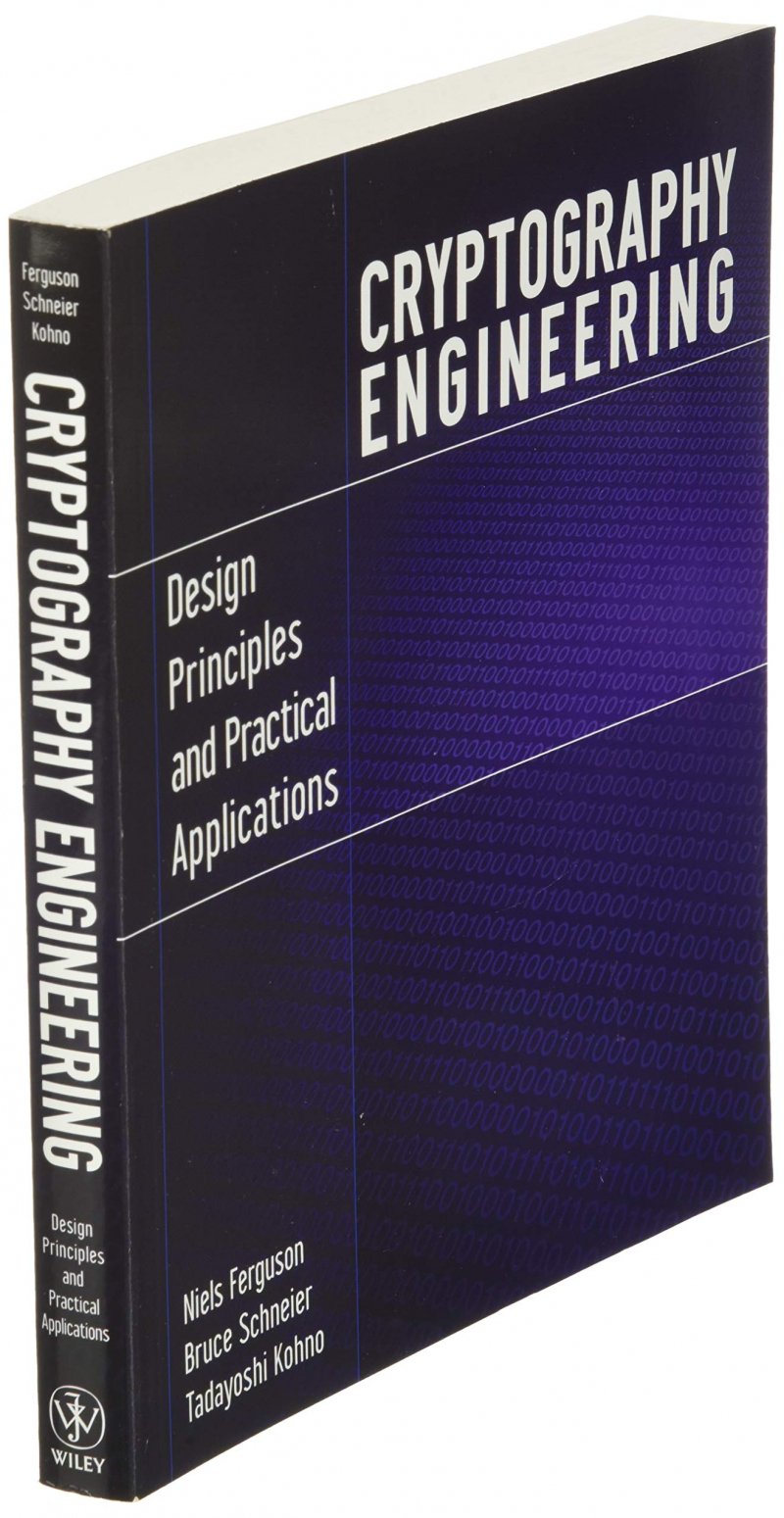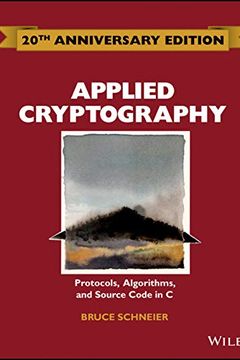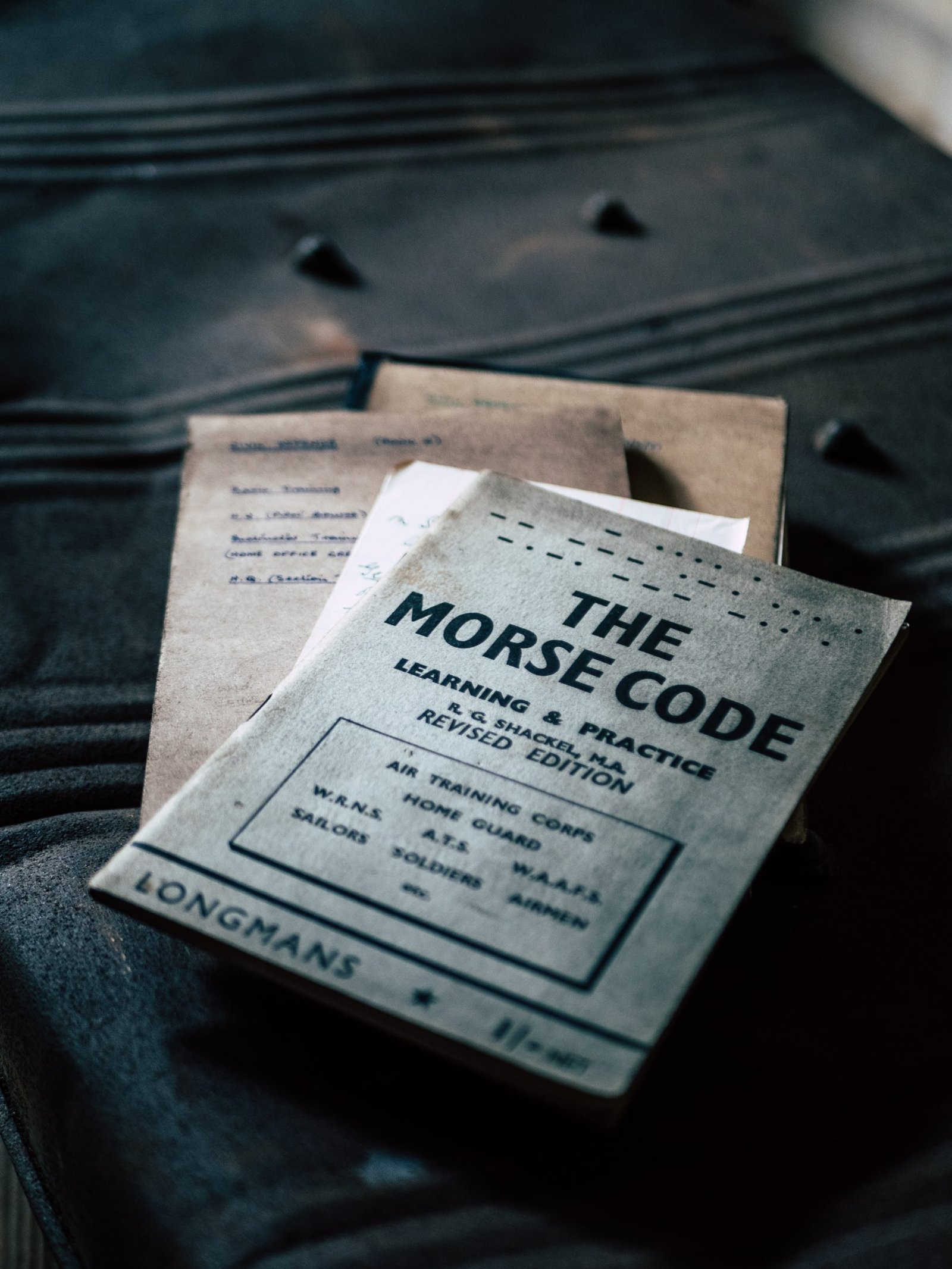Crack the Code: The Best Books on Cryptography and Secret Writing

Applied Cryptography: Protocols, Algorithms, and Source Code in C by Bruce Schneier
A detailed analysis of Bruce Schneier's book on cryptography and its practical applications
Bruce Schneier's book, “Applied Cryptography: Protocols, Algorithms, and Source Code in C,” is considered a cornerstone in the field of cryptography. With its comprehensive coverage of protocols, algorithms, and practical examples, this book serves as an invaluable resource for both beginners and experienced professionals.
Through this book, Schneier dives deep into the intricacies of cryptography, providing readers with a solid foundation in the subject matter. The book focuses on the practical applications of cryptography and provides source code examples in C, making it accessible to those with programming knowledge.
Schneier's book covers a wide range of topics, including symmetric and asymmetric key algorithms, cryptographic protocols, digital signatures, and key management. He also delves into the vulnerabilities and attacks that can compromise cryptographic systems, equipping readers with the knowledge needed to better protect their systems.
What sets this book apart is its ability to strike a balance between theory and real-world applications. Schneier takes complex cryptographic concepts and breaks them down into digestible explanations and practical examples.
Overall, “Applied Cryptography” is an essential resource for anyone seeking a comprehensive understanding of cryptography and its practical applications. By combining theoretical knowledge with practical examples and source code, Bruce Schneier has created a valuable resource that continues to be highly regarded in the field.

Introduction
When it comes to protecting sensitive information, cryptography plays a crucial role. For those interested in delving into this fascinating field, finding the right resources is essential. One highly recommended book is “Cryptography Engineering: Design Principles and Practical Applications” by Niels Ferguson, Bruce Schneier, and Tadayoshi Kohno.
Exploring the key concepts and principles covered in this comprehensive guide to cryptography engineering
This book offers a comprehensive and practical approach to understanding cryptography engineering. It covers essential topics such as cryptographic protocols, algorithm design, and key management. The authors explain complex concepts in a clear and accessible manner, making it a valuable resource for both beginners and experienced professionals.
One of the key strengths of this book lies in its emphasis on real-world applications. The authors provide insights into the challenges faced in implementing cryptography in various scenarios, including IoT devices, network security, and even election systems. This practical approach ensures that readers can apply the concepts learned to solve real problems.
Additionally, the book covers important aspects of cryptographic security, including side-channel attacks and countermeasures. By studying these topics, readers will gain a deeper understanding of the potential vulnerabilities in cryptographic systems and ways to mitigate them.
In conclusion, “Cryptography Engineering: Design Principles and Practical Applications” is a must-read for individuals interested in gaining a comprehensive understanding of cryptography engineering. Its practical focus, clear explanations, and coverage of essential topics make it an invaluable resource for anyone looking to build a strong foundation in this

The Code Book: The Science of Secrecy from Ancient Egypt to Quantum Cryptography by Simon Singh
A journey through the history of cryptography, covering various encryption techniques and their evolution over time
In “The Code Book,” Simon Singh takes readers on a captivating journey through the history of cryptography. From ancient Egypt to modern-day quantum cryptography, this book explores the evolution of encryption techniques and their significance.
Singh delves into the intriguing stories behind famous ciphers and codebreakers, such as the Enigma machine during World War II and the efforts to crack it. He also sheds light on lesser-known methods, including transposition and substitution ciphers used by ancient civilizations.
Beyond the historical aspect, “The Code Book” offers insights into the impact of cryptography on our daily lives. It discusses the role of encryption in securing online communications, protecting sensitive data, and maintaining privacy.
With a clear and engaging writing style, Singh manages to make complex concepts accessible to both novice readers and those already familiar with the subject. Additionally, the book includes practical exercises and challenges that enable readers to try their hand at encryption techniques.
“The Code Book” is a must-read for anyone interested in cryptography, history, or the intersection between mathematics and technology. It provides an excellent foundation for understanding the importance of encryption in our increasingly digital world.

Serious Cryptography: A Practical Introduction to Modern Encryption by Jean-Philippe Aumasson
An in-depth exploration of modern encryption methods, including symmetric and asymmetric cryptography, hashing, and more
In “Serious Cryptography: A Practical Introduction to Modern Encryption,” Jean-Philippe Aumasson provides readers with a comprehensive overview of modern encryption techniques. This book explores the fundamental concepts of cryptography, making it an ideal resource for both beginners and experienced professionals in the field.
One of the key strengths of this book is its detailed explanation of symmetric and asymmetric cryptography. Aumasson breaks down complex concepts into easily understandable terms, enabling readers to grasp how encryption algorithms work in practice. The book also covers essential topics such as hashing, key exchanges, digital signatures, and authenticated encryption.
What sets “Serious Cryptography” apart is its emphasis on practical applications. Aumasson provides real-world examples and code snippets in various programming languages, allowing readers to implement and experiment with encryption algorithms themselves. This hands-on approach enhances understanding and enables readers to gain practical skills in cryptography.
Moreover, Aumasson's writing style is clear and concise, avoiding excessive technical jargon and making the material accessible to a broader audience. With its comprehensive coverage of modern encryption methods and practical approach, “Serious Cryptography” is an invaluable resource for anyone looking to deepen their knowledge of cryptography.

Cryptography: Theory and Practice by Douglas R. Stinson
A comprehensive textbook that delves into the theoretical foundations of cryptography and its practical applications
Cryptography: Theory and Practice by Douglas R. Stinson is a highly acclaimed textbook that offers a comprehensive exploration of cryptography. Ideal for both students and professionals, this book covers the theoretical foundations of cryptography and its practical applications in a clear and concise manner.
With a focus on understanding the mathematical underpinnings of cryptographic algorithms, Stinson provides readers with a solid foundation in both classical and modern cryptography. The book covers a wide range of topics, including encryption, symmetric and asymmetric key algorithms, public-key infrastructures, digital signatures, and more. Each topic is explained in detail, with thorough explanations and numerous examples to aid in understanding.
One of the standout features of this book is its attention to practical applications. Stinson provides real-world scenarios and examples to demonstrate how cryptographic techniques are used in various domains, such as secure communication, electronic commerce, and digital rights management. This practical approach helps readers bridge the gap between theory and practice, making it an invaluable resource for anyone interested in cryptography.
Overall, Cryptography: Theory and Practice by Douglas R. Stinson is an essential read for anyone looking to deepen their understanding of cryptography. Its comprehensive coverage, clear explanations, and practical examples make it one of the best books available on the subject. Whether you are a student studying cryptography or a professional seeking to enhance your knowledge, this book is a must-have resource.

Understanding Cryptography: A Textbook for Students and Practitioners by Christof Paar and Jan Pelzl
A beginner-friendly introduction to cryptography, covering essential concepts and providing practical examples
Understanding Cryptography by Christof Paar and Jan Pelzl is a highly recommended textbook for both students and practitioners interested in learning the fundamentals of cryptography. This comprehensive guide offers a beginner-friendly introduction to the field, covering essential concepts and providing practical examples.
The authors take a systematic approach to explain cryptographic algorithms, protocols, and systems. They start with the basics, including historical context, and gradually introduce more complex topics, ensuring readers have a solid understanding at every step. The book also covers modern cryptographic techniques and their applications in various real-world scenarios.
What sets this textbook apart is its hands-on approach. It includes numerous exercises and programming assignments, allowing readers to apply their knowledge and reinforce their learning. Additionally, the authors provide access to an accompanying website with lecture slides, solutions to exercises, and additional resources for further exploration.
Whether you are a student studying cryptography or a practitioner looking to enhance your knowledge, Understanding Cryptography is an excellent resource that strikes a balance between theory and practical application.

Handbook of Applied Cryptography by Alfred J. Menezes, Paul C. van Oorschot, and Scott A. Vanstone
A comprehensive reference guide for professionals, covering cryptographic algorithms, protocols, and applications
The “Handbook of Applied Cryptography” is a must-have resource for professionals and enthusiasts in the field of cryptography. Co-authored by Alfred J. Menezes, Paul C. van Oorschot, and Scott A. Vanstone, this book provides a comprehensive reference guide that covers all aspects of cryptography, including algorithms, protocols, and applications.
The book begins with an introduction to cryptography, providing a solid foundation for understanding the concepts and principles that underpin cryptographic systems. It then delves into the details of various cryptographic algorithms, such as symmetric-key algorithms, public-key algorithms, and hash functions.
In addition to the algorithms, the book also discusses various cryptographic protocols, such as secure communication protocols, key exchange protocols, and digital signature protocols. It goes into great detail about the practical applications of cryptography in areas like secure communication, authentication, and data integrity.
One of the standout features of this book is its clarity and accessibility. The authors explain complex cryptographic concepts in a straightforward manner, making it suitable for both professionals and those new to the field.
Overall, the “Handbook of Applied Cryptography” is an indispensable resource for anyone interested in cryptography. Its comprehensive coverage, clear explanations, and practical examples make it an essential reference for professionals and a valuable learning tool for beginners.

Summarizing the importance of cryptography and recommending the best books for further exploration
Cryptography is a fascinating field that plays a critical role in ensuring the security and privacy of our digital communications and transactions. It is essential for individuals and organizations to understand the fundamentals of cryptography to protect sensitive information from unauthorized access and tampering.
For those looking to deepen their knowledge in cryptography, there are several excellent books available that provide comprehensive insights into this complex subject. Some noteworthy recommendations include:
-
“Applied Cryptography” by Bruce Schneier: Considered a staple in the field, this book covers both the theory and practical application of cryptography. It offers a clear and accessible introduction for beginners while also delving into advanced topics for more experienced readers.
-
“Cryptography Engineering” by Niels Ferguson, Bruce Schneier, and Tadayoshi Kohno: This book focuses on the engineering aspects of cryptography, providing practical guidance on designing and implementing secure systems. It offers a unique perspective on the challenges and solutions involved in real-world cryptographic systems.
-
“The Code Book” by Simon Singh: For those interested in the historical development of cryptography, this book offers a captivating journey through the ages. It covers famous historical ciphers, the roles of codebreakers, and the impact of cryptography on world events.
These books serve as valuable resources for individuals seeking a deeper understanding of cryptography. By studying these texts, readers can enhance their knowledge and contribute to the ongoing advancement of secure communication systems.

Frequently Asked Questions
Addressing common queries and concerns related to cryptography and recommended books
Cryptography is a fascinating field that plays a crucial role in ensuring the security of data and communications. For those looking to delve deeper into this subject, here are some frequently asked questions about cryptography, along with recommendations for the best books to enhance your knowledge.
- What are the best books on cryptography?
-
“Applied Cryptography” by Bruce Schneier: This comprehensive guide covers both the theory and practical applications of cryptography, making it an invaluable resource for beginners and experts alike.
-
“The Code Book” by Simon Singh: An engaging exploration of the history of cryptography, from ancient times to modern encryption methods. This book presents complex concepts in a clear and accessible manner, making it suitable for both beginners and enthusiasts.
-
“Cryptonomicon” by Neal Stephenson: A captivating work of fiction that intertwines cryptography, mathematics, and World War II history. While not a technical guide, it offers a unique perspective on the subject and is highly recommended for those interested in cryptography's real-world impact.
- How can these books help in understanding cryptography?
These books provide a solid foundation in cryptography by covering various topics such as encryption algorithms, key management, protocol design, and more. They offer insights into the historical context, modern challenges, and practical applications of cryptography, allowing readers to grasp both the theoretical concepts and their real-world implications.
- Are these books suitable for beginners?
Yes, these books are suitable for beginners and individuals with different levels of expertise. They provide clear explanations and examples to help readers build a strong understanding of cryptography, regardless of their prior knowledge or experience in the field.
Remember, reading these books is just the starting point. Practice and hands-on experience are essential for mastering cryptography.

